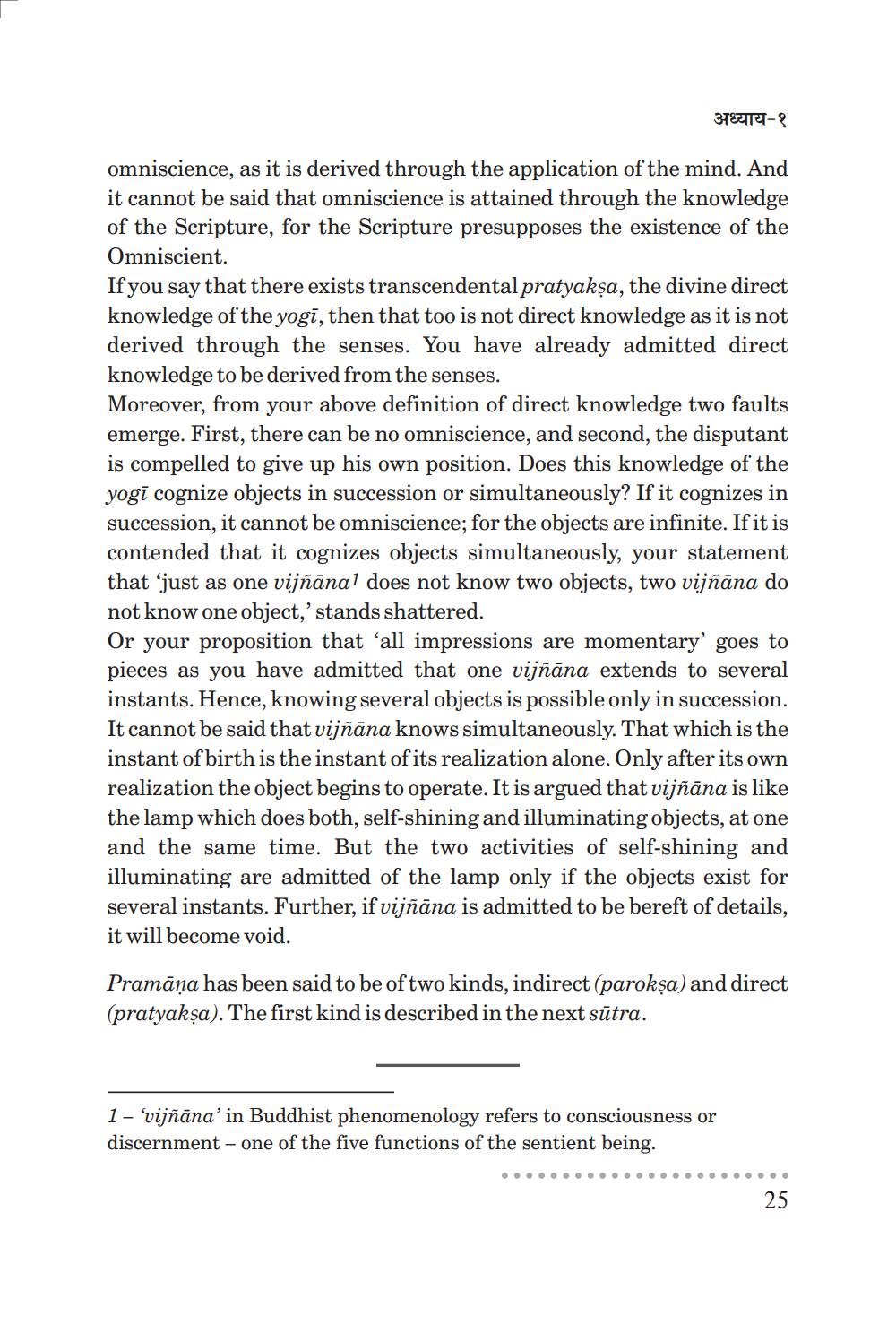________________
अध्याय- १
omniscience, as it is derived through the application of the mind. And it cannot be said that omniscience is attained through the knowledge of the Scripture, for the Scripture presupposes the existence of the Omniscient.
If you say that there exists transcendental pratyakṣa, the divine direct knowledge of the yogi, then that too is not direct knowledge as it is not derived through the senses. You have already admitted direct knowledge to be derived from the senses.
Moreover, from your above definition of direct knowledge two faults emerge. First, there can be no omniscience, and second, the disputant is compelled to give up his own position. Does this knowledge of the yogi cognize objects in succession or simultaneously? If it cognizes in succession, it cannot be omniscience; for the objects are infinite. If it is contended that it cognizes objects simultaneously, your statement that 'just as one vijñānal does not know two objects, two vijñāna do not know one object,' stands shattered.
Or your proposition that 'all impressions are momentary' goes to pieces as you have admitted that one vijñāna extends to several instants. Hence, knowing several objects is possible only in succession. It cannot be said that vijñāna knows simultaneously. That which is the instant of birth is the instant of its realization alone. Only after its own realization the object begins to operate. It is argued that vijñāna is like the lamp which does both, self-shining and illuminating objects, at one and the same time. But the two activities of self-shining and illuminating are admitted of the lamp only if the objects exist for several instants. Further, if vijñāna is admitted to be bereft of details, it will become void.
Pramāna has been said to be of two kinds, indirect (parokṣa) and direct (pratyakṣa). The first kind is described in the next sūtra.
1- 'vijñāna' in Buddhist phenomenology refers to consciousness or discernment - one of the five functions of the sentient being.
25




